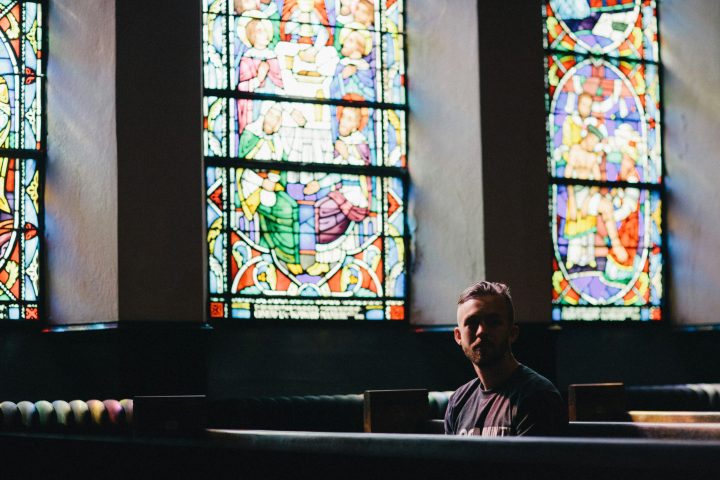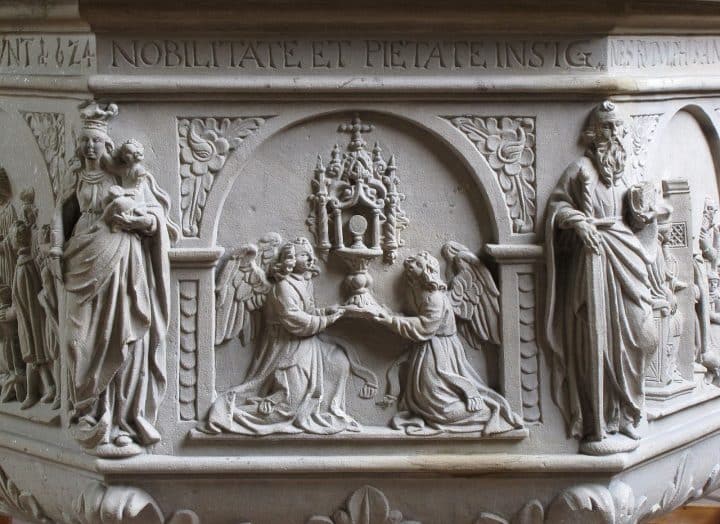
In the face of an urgent emergency where a house is consumed by flames, and time is scarce, one is confronted with a difficult decision: which of the following should be rescued—a potted plant, a beloved pet animal, or a human being? The general consensus is that a sensible person would prioritize the preservation of human life. But what attributes of human life bestow upon it the highest value, warranting such prioritization over plants and animals?
The profound answers to these questions can be found within the pages of Genesis chapter one, where the creation story provides a theological foundation for comprehending the divine origin and order of the world. In this narrative, the concept of the “soul” emerges as the life principle present in all living things—the animating force that grants life and vitality to organisms. While the soul is undividable, there exists a recognition of a hierarchy of powers or faculties as we ascend from lower forms of life to higher forms, progressing from plants to animals and finally to humans. This hierarchy is based on the distinct functions and abilities associated with each order of souls. It is essential to note that this hierarchy does not diminish the intrinsic value of any living being; rather, every soul is a divine gift endowed with a purpose in God’s grand design. The hierarchy merely establishes distinctions based on the faculties and capacities associated with different orders.
The creation account in Genesis describes the initial state of the Earth as formless and void, and it explains how God, through His divine power, brought forth the heavens and the Earth from nothingness over the course of six days. Each day witnessed the emergence of new creations: on the first day, light and darkness were separated to form day and night; on the second day, the waters were organized; and on the third day, dry land emerged along with flourishing vegetation. The creation of plants has significant importance as the first type of soul encountered in the creation story. At the base of the hierarchy, plants possess a principle of life and operation, commonly referred to as a “vital principle” or a “vegetative soul.” This vital principle enables plants to fulfill essential life functions such as nutrition, growth, and reproduction. These inherent capacities allow them to interact with their environment, absorb nutrients, undergo photosynthesis, and engage in other vital biological processes necessary for their sustenance and development.
Continuing the hierarchy, on the fourth day, God created the sun and moon, while on the fifth day, aquatic creatures—including fish and birds—came into existence. Next, on the sixth day, land animals were brought forth, signifying the presence of the second type of soul encountered in the creation story. Animals possess sensitive souls, often referred to as a “sensitive principle,” which grants them the capacity for sensory perception, instincts, and rudimentary forms of learning. This sensitive soul enables animals to interact with their environment, experience sensations and emotions, and act in accordance with their inherent nature.
Reaching the pinnacle of the hierarchy on the sixth day, God imparted profound words upon His final creation, stating, “Let us make human beings in our image, after our likeness. Let them have dominion over the fish of the sea, the birds of the air, the tame animals, all the wild animals, and all the creatures that crawl on the Earth. God created mankind in his image; in the image of God he created them; male and female he created them.” (Genesis 1:26-27) At this point in the story, we encounter a soul unlike any witnessed before—a unique gift from God bestowed upon each individual, granting a share in His divine image and likeness. This is the creation of the rational soul. When God creates this type of soul, He does something extraordinary—He breathes His divine life into each soul, symbolizing the infusion of the human soul with His own being. “Then the LORD God formed the man out of the dust of the ground and blew into his nostrils the breath of life, and the man became a living being.” (Genesis 2:7) This divine breath signifies the divine origin of the human soul and its intimate connection to God.
The rational soul enriches human beings with remarkable gifts—an extraordinary capacity for a profound personal relationship with God, an inherent yearning for truth and purpose, and the freedom to make choices guided by moral principles. Every human being, uniquely fashioned by God from the moment of conception, possesses one rational soul united with the body. This divine gift endows the human soul with faculties of intellect and will, empowering individuals to engage in rational thought, discern moral truths, and exercise free will. Humans can seek and encounter God, respond to His grace, and actively participate in a deeply personal relationship with Him through the capacity for rationality and moral consciousness. To comprehend the
complex nature of the human soul and its faculties, we can broadly categorize them into two fundamental realms: the mind and the heart. The intellectual faculties (mind) enable us to explore rationality, acquire knowledge, and engage in reasoning, while the affective faculties (heart) allow for the experience of emotions, the pursuit of desires, and the formation of moral judgments.
Intellectual Faculties (Mind):
Intellect: The faculty of reason and understanding, enabling knowledge acquisition, abstract thinking, and logical reasoning.
Memory: The faculty of retaining and recalling past experiences, knowledge, and information.
Imagination: The faculty that enables the formation and manipulation of mental images, ideas, and concepts.
Judgment: The faculty of evaluating and forming opinions based on reason and knowledge.
Intuition: The faculty of immediate knowledge or insight without conscious reasoning.
Faith: The supernatural faculty that enables belief in God and acceptance of divine revelation.
Affective Faculties (Heart):
Will: The faculty of volition and choice, enabling individuals to make decisions and act in accordance with their choices.
Emotions: The sensitive responses of the soul to various stimuli, including feelings such as love, joy, anger, sorrow, and desire.
Conscience: The faculty that enables individuals to discern right and wrong and make moral judgments.
Appetite: The faculty that governs human desires and inclinations, including physical appetites and desires for various goods.
Motivation: The faculty that drives individuals to pursue goals and take action.
Social Faculties: The faculties that facilitate social interaction, empathy, and the formation of relationships.
This hierarchy of faculties reflects a ladder of perfection, with humans at the summit due to their unique intellectual and moral capacities. Again, all of creation is valued and cherished by God; however, the human soul occupies a distinctive position in the divine plan of salvation. It holds profound significance within the realm of salvation and redemption. In this divine plan, God extends His offer of reconciliation and the promise of eternal life to human souls through the profound events of the Incarnation, Passion, Death, and Resurrection of Jesus Christ. These acts bestow God’s love, mercy, and saving grace upon the human soul. Through the transformative power of God’s redemptive work, the human soul finds the opportunity for reconciliation with God and the hope of attaining eternal life.
While plants and animals possess their inherent worth and purpose in God’s creation, they do not possess the same faculties of reason and moral consciousness as humans. In an emergency scenario, any reasonable person would prioritize the rescue of a human life over a potted plant or a pet animal. This prioritization arises from the special relationship between the human soul and God, marked by the human soul’s divine image and likeness, spiritual nature, rationality, moral consciousness, and capacity for redemption and salvation. Through this unique relationship, humans can know, love, and unite with God, participating in His divine plan and attaining eternal communion with Him.
Photo by Babak Habibi on Unsplash




